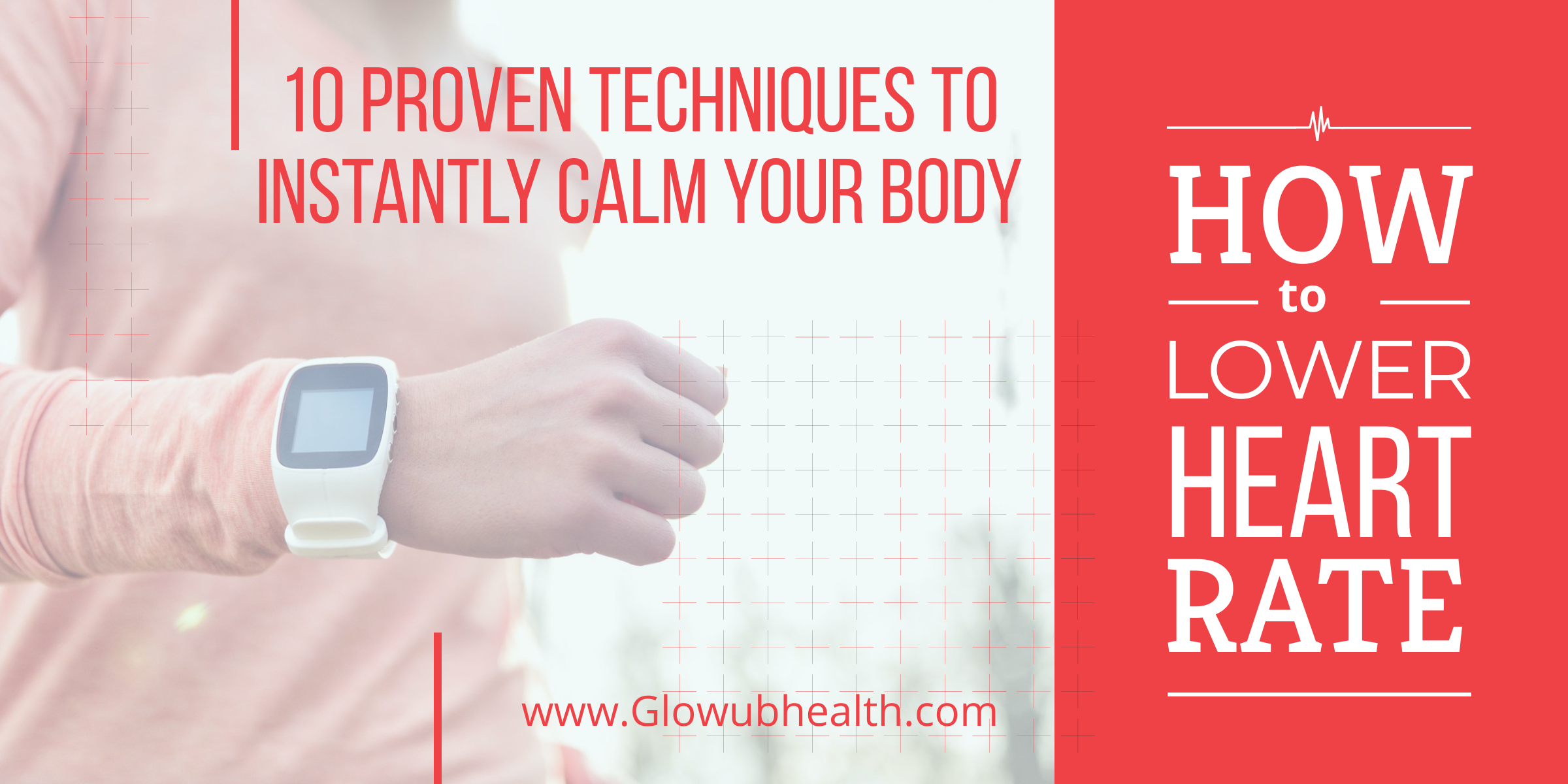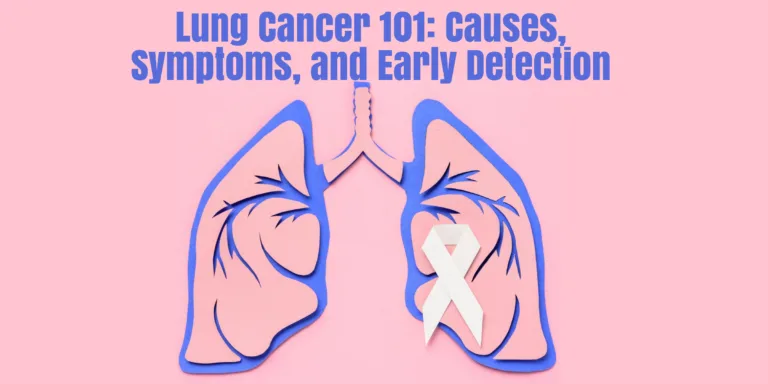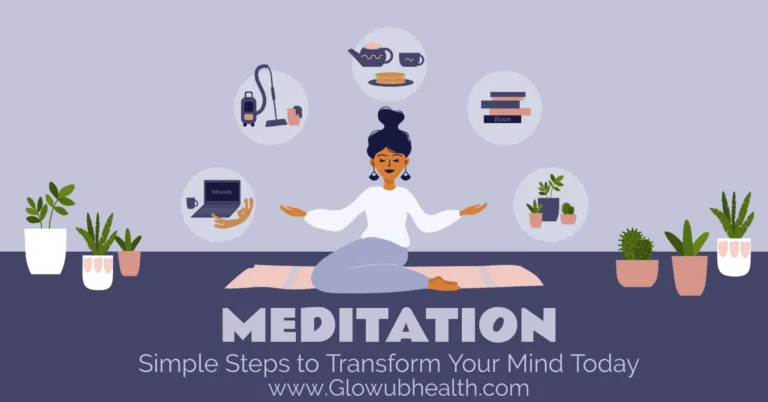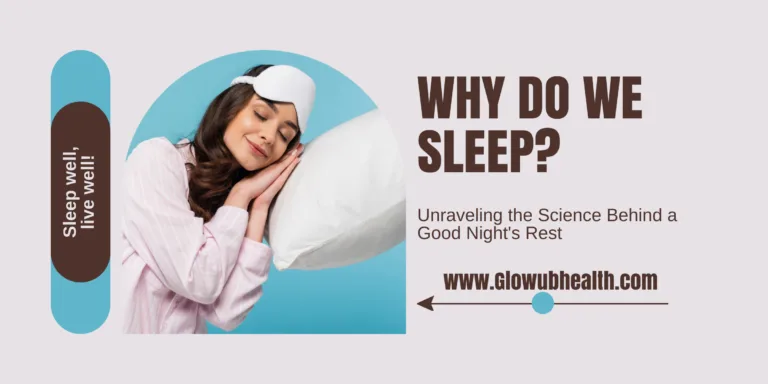How to Lower Heart Rate : 10 Proven Techniques to Instantly Calm Your Body
Your heart rate is more than just a number — it’s a window into your overall health. It shows how well your heart is doing its job of pumping blood and delivering oxygen throughout your body. While a quickened heart rate can be a natural response to things like stress, anxiety, or dehydration, if it stays elevated for too long, it can put unnecessary strain on your heart.
Learning how to lower your heart rate quickly and effectively isn’t just about feeling better in the moment; it’s about taking steps to protect your heart and well-being for the long run. Let’s explore some simple yet powerful ways to bring that number down and feel more balanced — physically and mentally.
This content is for informational purposes only and is not intended as medical advice. Please consult with your healthcare provider before attempting any techniques to alter your heart rate, particularly if you have underlying health conditions.

What Is a Healthy Heart Rate?
Before diving into ways to lower heart rate, it’s essential to understand what a healthy resting heart rate is and why it’s important for your health.
What Is a Resting Heart Rate?
Your resting heart rate is the number of times your heart beats per minute while your body is at rest. For most adults, the typical resting heart rate falls between 60 to 100 beats per minute (bpm). However, athletes and individuals with higher cardiovascular fitness tend to have lower resting heart rates, sometimes as low as 40 bpm.
A lower resting heart rate generally indicates better heart function and cardiovascular fitness. But if your heart rate is consistently above the normal range, it could signal underlying health issues such as stress, dehydration, or even cardiovascular disease.
Why Is Lowering Your Heart Rate Important?

Your heart rate is more than just a number. When your heart beats faster than normal, especially at rest, it puts extra strain on your cardiovascular system. Over time, this can lead to heart disease, high blood pressure, and other chronic conditions.
By lowering your heart rate, you’re not just calming your body in the moment; you’re also taking proactive steps to protect your heart and health in the long term. This guide will teach you 10 proven techniques to lower your heart rate, based on scientific research and practical advice.
1. Practice Deep Breathing Exercises
How Deep Breathing Lowers Heart Rate

Deep breathing is one of the most effective and quickest ways to lower your heart rate. When you’re stressed, your heart rate increases because of the “fight or flight” response, which is triggered by the release of stress hormones like adrenaline and cortisol.
Deep breathing helps engage the parasympathetic nervous system, which counteracts the stress response and slows down your heart rate.
Step-by-Step Guide to Deep Breathing
Repeat: Continue this breathing pattern for 5 to 10 minutes or until you feel your heart rate slowing.
- Find a comfortable position: Sit or lie down in a quiet environment where you won’t be disturbed.
- Inhale deeply: Breathe in slowly through your nose for a count of 4, allowing your belly to expand as you take in air.
- Hold your breath: Hold your breath for a count of 4 to 7 seconds.
- Exhale slowly: Release the air slowly through your mouth for a count of 6 to 8 seconds, allowing your belly to contract.
- Repeat: Continue this breathing pattern for 5 to 10 minutes or until you feel your heart rate slowing.
Case Study: Deep Breathing and Heart Rate Reduction
A 2019 study published in Frontiers in Psychology found that deep breathing exercises significantly lowered heart rate and blood pressure in individuals under acute stress. Participants who practiced deep breathing for 10 minutes daily saw a notable reduction in heart rate within two weeks. This simple practice has proven to be an effective tool for calming the body during stressful situations.
Testimonial: Deep Breathing
When I started incorporating deep breathing exercises into my routine, I was skeptical. But after a particularly stressful work week, I decided to give it a try.
Within just a few minutes of deep breathing, I noticed my heart rate slowing and my mind becoming clearer. Now, it’s my go-to technique when I feel overwhelmed.
2. Engage in Progressive Muscle Relaxation (PMR)

What Is Progressive Muscle Relaxation?
Progressive muscle relaxation (PMR) is a technique that involves tensing and then relaxing specific muscle groups in a systematic order. This practice reduces physical tension in the body and helps lower heart rate by promoting relaxation and reducing stress.
How to Practice Progressive Muscle Relaxation
- Find a comfortable position: Lie down or sit in a quiet place where you won’t be disturbed.
- Tense each muscle group: Starting with your feet, tense each muscle group (e.g., toes, legs, arms, chest, shoulders) for about 5 seconds.
- Release the tension: After holding the tension for 5 seconds, release it slowly, focusing on the feeling of relaxation that follows.
- Work your way up: Continue this process for each muscle group, from your feet to your head.
Research on PMR and Heart Rate
A study in Applied Psychophysiology and Biofeedback found that PMR significantly reduced heart rate, blood pressure, and anxiety in participants who practiced it for 15 minutes per day.
This technique is particularly beneficial for people who experience stress-induced heart rate spikes.
Testimonial: PMR
I was introduced to PMR during a particularly stressful time in my life when I was juggling multiple responsibilities. By practicing PMR for just 10 minutes each night, I was able to significantly reduce my resting heart rate and improve my sleep quality.
I noticed that my body felt more relaxed, and I experienced fewer moments of heightened stress during the day.
3. Hydrate to Lower Heart Rate

The Impact of Dehydration on Heart Rate
Did you know that dehydration can cause your heart to work harder? When you’re dehydrated, your blood volume decreases, making your heart pump more rapidly to deliver oxygen and nutrients to your organs and tissues. This leads to an increase in heart rate. By staying properly hydrated, you can help maintain a healthy heart rate.
How Much Water Should You Drink?
The amount of water you need depends on your body size, activity level, and the climate you live in, but general guidelines recommend:
- Men: Around 3.7 liters (125 ounces) per day.
- Women: About 2.7 liters (91 ounces) per day.
These numbers include all fluids consumed throughout the day, not just water. Eating hydrating foods, such as fruits and vegetables, can also contribute to your overall fluid intake.
Testimonial: Hydration and Heart Rate
After reading about the effects of dehydration on heart rate, I started tracking my water intake. On days when I drank more water, I noticed that my resting heart rate was lower and I felt more energized. Staying hydrated has now become a top priority for my heart health.
4. Engage in Mindful Meditation

How Meditation Lowers Heart Rate
Meditation, especially mindfulness meditation, is a powerful way to calm both the mind and the body. Meditation reduces the production of stress hormones and lowers heart rate by encouraging deep, mindful breathing and present-focused awareness. It helps activate the parasympathetic nervous system, which counteracts the “fight or flight” response and reduces heart rate.
How to Practice Mindful Meditation
- Find a quiet space: Sit comfortably and close your eyes.
- Focus on your breath: Pay attention to the sensation of your breath as it enters and exits your body.
- Refocus when distracted: If your mind begins to wander, gently bring your focus back to your breath.
- Continue for 10-20 minutes: Practice this meditation daily for the best results.
Research on Meditation and Heart Rate
A study published in the Journal of Evidence-Based Complementary & Alternative Medicine found that mindfulness meditation reduced heart rate, blood pressure, and overall stress in participants who practiced it for just 20 minutes a day over an eight-week period.
The relaxation response triggered by meditation was shown to significantly lower heart rate in both short-term and long-term scenarios.
Testimonial: Meditation Journey
When I started meditating, I was unsure of its impact on heart health. However, within a few weeks of meditating for 15 minutes each morning, I noticed a significant reduction in my heart rate.
It also helped me manage stress more effectively, allowing me to stay calm during challenging situations. Meditation is now a core part of my daily routine.
5. Take a Cold Shower or Use Cold Therapy

How Cold Therapy Lowers Heart Rate
Cold therapy, such as cold showers or ice baths, can quickly lower your heart rate. When exposed to cold, your body stimulates the vagus nerve, which helps activate the parasympathetic nervous system, thereby slowing down your heart rate.
Read More: Cryotherapy 10 Powerful Benefits That Will Transform Your Health
How to Take a Cold Shower for Heart Rate Reduction
- Start with warm water: Begin your shower with warm water to relax your muscles.
- Gradually turn the water colder: After a minute or two, slowly turn the water to a cooler temperature.
- Spend 2-3 minutes in cold water: Allow the cold water to run over your body for about 2-3 minutes, focusing on deep breathing to maintain calm.
- Exit the shower and warm up: After the cold exposure, dry off and warm up with a towel.
Benefits of Cold Therapy Beyond Heart Rate
In addition to lowering heart rate, cold therapy has been shown to improve circulation, reduce inflammation, and enhance mental clarity. Athletes often use cold therapy after workouts to speed up recovery and reduce muscle soreness.
Case Study: Cold Showers and Heart Rate
A study conducted by the American Heart Association found that regular cold exposure through cold showers or ice baths resulted in a lower resting heart rate and improved overall cardiovascular health in participants who practiced cold therapy three times a week for one month.
6. Reduce Caffeine Intake

How Caffeine Affects Heart Rate
Caffeine is a natural stimulant that increases heart rate and blood pressure by stimulating the central nervous system. While moderate caffeine intake can provide a temporary boost of energy, excessive consumption can lead to tachycardia, a condition characterized by a fast heart rate.
Tips to Reduce Caffeine Intake
- Limit coffee consumption: Try to limit your coffee intake to 1-2 cups per day, and avoid consuming it after 2 p.m. to allow your body time to metabolize the caffeine before bed.
- Switch to decaf or herbal teas: Consider switching to decaffeinated coffee or herbal teas like chamomile or peppermint, which promote relaxation.
- Monitor hidden sources of caffeine: Be mindful of caffeine in foods, supplements, and medications, such as energy drinks, chocolate, or certain over-the-counter pain relievers.
Testimonial: Cutting Back on Caffeine
I used to rely heavily on coffee to get through my day, but after noticing that my heart rate would skyrocket after my third or fourth cup, I decided to cut back. Over time, I found that reducing my caffeine intake helped stabilize my heart rate, and I no longer experienced the afternoon energy crashes that often followed my morning coffee binges.
7. Practice Yoga for Heart Health

How Yoga Lowers Heart Rate
Yoga is a mind-body practice that combines physical postures, controlled breathing, and meditation to promote relaxation and reduce heart rate. Certain yoga poses, such as forward bends and inversions, stimulate the parasympathetic nervous system, which helps calm the body and lower heart rate.
Yoga Poses for Lowering Heart Rate
- Child’s Pose (Balasana): This restful pose stretches the back and relaxes the body.
- Kneel on the floor, sit back on your heels, and extend your arms forward while lowering your forehead to the mat.
- Legs Up the Wall (Viparita Karani): This inversion pose helps reduce heart rate and promote relaxation.
- Lie on your back with your legs extended up against a wall, forming a 90-degree angle.
- Corpse Pose (Savasana): This restorative pose allows the body to enter a deep state of relaxation.
- Lie flat on your back with your arms and legs relaxed, focusing on your breath.
Case Study: Yoga and Heart Rate
A 2018 study published in the Journal of Ayurveda and Integrative Medicine found that participants who practiced yoga for 12 weeks experienced a significant reduction in resting heart rate, as well as improvements in overall cardiovascular health. The calming effects of yoga were particularly pronounced in individuals who practiced mindfulness-based yoga.
Testimonial: My Yoga Journey
I started practicing yoga as a way to relieve stress, but I quickly noticed that it also helped lower my heart rate, especially after a particularly intense day. Yoga has become a regular part of my fitness routine, and I find that it helps me maintain a sense of calm and balance throughout the day.
8. Listen to Calming Music

How Music Affects Heart Rate
Listening to calming music can have a profound effect on your heart rate and overall mood. Research shows that slow-tempo music—particularly classical or instrumental music—can lower heart rate, blood pressure, and stress levels. Music with a slow, steady beat promotes relaxation and helps activate the parasympathetic nervous system.
How to Create a Calming Playlist
- Choose slow-tempo tracks: Select music with a slow tempo (60-80 bpm) to promote relaxation.
- Include instrumental or nature sounds: Tracks with nature sounds, such as rain, ocean waves, or birdsong, can help create a soothing atmosphere.
- Listen for 10-15 minutes: Play your calming playlist for at least 10-15 minutes to feel the full effect.
Research on Music and Heart Rate
A 2020 study published in the Journal of Cardiovascular Medicine found that participants who listened to classical music for 30 minutes daily experienced lower heart rates and reduced levels of stress hormones.
Music therapy is now being used in some hospitals to help patients manage anxiety and improve heart health.
Testimonial: Music for Heart Rate Reduction
After a long day at work, I often turn to music to help me unwind. I created a calming playlist of instrumental tracks, and I’ve found that just 15 minutes of listening to this music helps lower my heart rate and put me in a more relaxed state of mind. Music has become an essential part of my evening routine.
9. Get Enough Sleep

The Importance of Sleep for Heart Health
Poor sleep can have a negative impact on your heart rate and overall cardiovascular health. When you don’t get enough sleep, your body produces more stress hormones, which can increase your heart rate and blood pressure. Consistently poor sleep quality is associated with an increased risk of heart disease, obesity, and diabetes.
Read More: Why Do We Sleep? Unraveling the Science Behind a Good Night’s Rest
Tips for Better Sleep
- Stick to a regular sleep schedule: Go to bed and wake up at the same time every day, even on weekends.
- Create a bedtime routine: Establish a relaxing pre-sleep routine, such as reading a book or taking a warm bath, to signal to your body that it’s time to wind down.
- Limit screen time before bed: Avoid using phones, computers, or watching TV at least 1-2 hours before bed to allow your body to produce melatonin, the sleep hormone.
Research on Sleep and Heart Rate
A study published in the Journal of Clinical Sleep Medicine found that individuals who slept for 7-8 hours per night had lower resting heart rates and reduced risk of cardiovascular disease compared to those who slept less than 6 hours per night.
Prioritizing quality sleep is one of the best ways to maintain a healthy heart rate and overall health.
Testimonial: Improving Sleep and Heart Rate
After experiencing several sleepless nights, I started implementing a consistent sleep routine. I reduced my caffeine intake, limited screen time before bed, and created a calming bedtime ritual that included light reading and stretching.
Within a few weeks, I noticed that my heart rate was lower in the mornings, and I felt more rested and energetic throughout the day.
10. Manage Stress Effectively

How Stress Affects Heart Rate
Stress triggers the release of adrenaline and cortisol, two hormones that increase heart rate and blood pressure. When you’re under chronic stress, your heart is constantly working harder, which can lead to long-term cardiovascular issues. Learning to manage stress effectively is essential for maintaining a healthy heart rate.
Stress-Relief Techniques
- Journaling: Writing down your thoughts and emotions can help you release built-up tension and gain clarity on stressful situations.
- Exercise: Regular physical activity, such as walking, swimming, or cycling, can lower stress and improve heart health.
- Social support: Spending time with loved ones or seeking support from a counselor can help you manage stress more effectively.
Research on Stress and Heart Rate
A study published in the American Journal of Cardiology found that individuals who practiced stress-management techniques, such as journaling and meditation, experienced lower heart rates and reduced risk of heart disease over a 12-month period. Learning how to manage stress is one of the most effective ways to protect your heart.
Testimonial: Stress-Management Techniques
During a particularly stressful period at work, I started using stress-relief techniques like journaling and taking short walks during my lunch breaks. These small changes helped me feel more in control of my stress, and I noticed that my heart rate was lower, even during busy days. Managing stress has become a key part of my heart health routine.
Read More: Manage Stress : 7 Effective Techniques to Reduce Daily Tension
Conclusion
Lowering your heart rate isn’t just about reacting in stressful moments; it’s about building habits that support your heart and well-being every day. By weaving these 10 simple techniques into your daily life, you can not only reduce your heart rate but also create a foundation for better overall health.
From deep breathing and yoga to staying hydrated and managing stress, these practices give you tools to take care of your heart in a holistic way. Remember, keeping your heart rate in check isn’t just about preventing future issues — it’s about enjoying a healthier, calmer life right now.
By embracing these habits, you’re not just strengthening your heart; you’re also nurturing peace of mind and the confidence that you’re looking out for your body’s well-being in the long run.
FAQ
1. What is a normal resting heart rate?
A normal resting heart rate for adults typically ranges from 60 to 100 beats per minute (bpm). However, a lower heart rate is generally associated with better cardiovascular health. Athletes and individuals who are more physically fit may have resting heart rates closer to 40-60 bpm.
2. What causes a high heart rate?
A high heart rate can be caused by several factors, including:
-Stress or anxiety
-Dehydration
-Physical exertion
-Consumption of caffeine or stimulants
-Certain medications
-Medical conditions such as hyperthyroidism or heart arrhythmias
If your heart rate is consistently elevated, it’s a good idea to consult with a healthcare professional to rule out any underlying conditions.
3. How can I lower my heart rate quickly?
To lower your heart rate quickly, try these methods:
-Practice deep breathing exercises
-Engage in progressive muscle relaxation
-Take a cold shower
-Meditate or listen to calming music
-Drink water to stay hydrated
-Use yoga poses or stretching exercises to relax
4. Is it bad if my heart rate is too low?
A low heart rate (below 60 bpm) can be normal, especially for athletes or physically fit individuals. However, if your heart rate is unusually low and accompanied by dizziness, fatigue, or fainting, it could be a sign of bradycardia. In such cases, it’s important to seek medical attention to ensure there are no underlying health issues.
5. How does dehydration affect heart rate?
Dehydration decreases blood volume, causing your heart to pump faster to maintain blood flow, which can increase your heart rate. Staying hydrated helps maintain normal blood volume and keeps your heart rate within a healthy range.
6. Can exercise lower my resting heart rate?
Yes, regular cardiovascular exercise, such as walking, running, swimming, or cycling, can strengthen your heart and lower your resting heart rate over time. Exercise improves the efficiency of your heart, allowing it to pump blood more effectively with fewer beats.
7. Does anxiety cause a high heart rate?
Yes, anxiety activates the body’s fight-or-flight response, releasing stress hormones like adrenaline that increase your heart rate. Relaxation techniques such as deep breathing, mindfulness meditation, and progressive muscle relaxation can help lower your heart rate when you’re feeling anxious.
8. How long does it take to lower my heart rate through lifestyle changes?
Lifestyle changes such as regular exercise, improved hydration, better sleep, and stress management can lower your resting heart rate within a few weeks to a few months, depending on your consistency. Practicing relaxation techniques like meditation or deep breathing can provide immediate relief in acute situations.
9. Can caffeine cause my heart rate to increase?
Yes, caffeine is a stimulant that can raise your heart rate by stimulating your central nervous system. If you’re sensitive to caffeine, reducing your intake of coffee, energy drinks, or other caffeinated products can help lower your heart rate.
10. When should I see a doctor about my heart rate?
It’s important to see a doctor if:
-Your heart rate is consistently above 100 bpm or below 60 bpm (and -you’re not an athlete).
-You experience symptoms such as dizziness, shortness of breath, chest pain, or fainting.
-You notice a sudden, unexplained change in your heart rate.
Always consult a healthcare professional if you have concerns about your heart rate or overall heart health.






